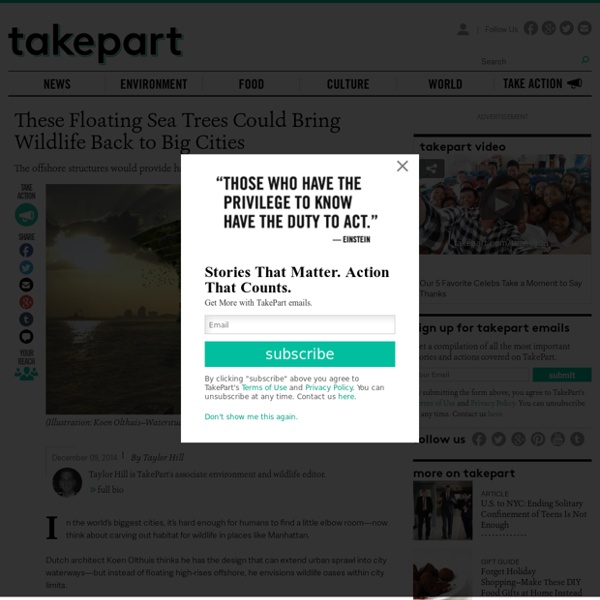The Surprising Source of Pollution Trashing San Diego’s Beaches
When San Diego environmentalists tallied up how much trash they collected from local beaches in 2014, they found, not surprisingly, a lot of plastic. In fact, volunteers removed 23,477 pieces of plastic and 17,438 pieces of plastic foam. But that pollution was dwarfed by the 75,069 cigarette butts fouling beaches, according to a report released Monday by San Diego Coastkeeper and the San Diego chapter of the Surfrider Foundation. “Littered butts continue to be a major concern because they are nonbiodegradable and leach toxins into the water, poisoning marine life,” the report states. “They also move with ease through our storm water systems, meaning a cigarette butt need not be dropped directly at the beach in order to find its way there.” Although smoking rates have been in decline for decades, more butts are finding their way to the beach. The question is, why? In 2014, more than 7,000 volunteers picked up 207,804 pieces of trash weighing a total of 10,455 pounds.
This Reusable Paper Saves Trees and Prints Using Ultraviolet Light
Scientists are redefining what it means to go paperless. Researchers at the University of California, Riverside, have been working on an alternative to traditional paper that can be printed on and erased more than 20 times. Its low-cost production could help reduce waste, deforestation, and chemical pollution, according to chemistry professor Yadong Yin, who copublished a paper on the design in Nature. “If we are comparing the rewritable paper to conventional ones, it has the advantages of being more economical, environmental, and energy friendly,” he said. “It can be produced at about the same cost as regular paper and does not require additional inks for printing.” Ultraviolet light is used to print on the rewritable “paper,” which is a thin plastic film coated in nontoxic dye. The material doesn’t disintegrate over time, but the scientists are working on a method to create a cellulose-based version that's less environmentally harmful to produce than regular paper.
Outlet Outrage: Why Not All Electric Cars Are as Clean as They Seem
Shocker: If the current powering your electric vehicle is generated by coal-fired power plants, that automobile could be causing more air pollution than cars that burn gasoline. That’s one finding of a new study out of the University of Minnesota, where researchers ran models to better grasp how much air pollution was created by the full scope of activities needed to power electric cars versus gasoline-fueled cars. They included not just the fuel burned or not burned by the vehicle but also the emissions created by generating electricity or manufacturing gasoline. “Our work highlights the importance of looking at the full life cycle of energy production and use, not just at what comes out of tailpipes,” Jason Hill, assistant professor and coauthor of the study, said in a statement. However, EVs are able to take advantage of a transition to low-carbon electricity generation by becoming cleaner vehicles, while gas-powered cars cannot.
Free Money to Save Water? You Can Do It, and Here’s How
Would you try to save water if someone paid you to conserve? A start-up called MeterHero thinks so. Last week, the company started paying out cash rebates to people who curb their water consumption. It’s not a lot—$1 for every 100 gallons saved—but the initiative marks a new approach to conservation. Getting a grip on your water use can be a pain, given that utilities reveal consumption in unfamiliar terms (centum cubic feet, anyone?) and too infrequently (as in every month or three). MeterHero gives consumers an online platform to track how much water they use in terms they can understand. McGee Young, a political science professor at Marquette University in Wisconsin, founded MeterHero earlier this year to address what he observed as a contradiction between the utility business model and the need for conservation in an increasingly water-stressed world. MeterHero’s solution: provide incentives for both consumers and businesses to use less water. Anyone who has a water meter can sign up.
2014 Was the Hottest Year—Ever
The heat is on, climate deniers. Two separate analyses by scientists at NASA and the National Oceanic and Atmospheric Administration released Friday confirm that 2014 was the hottest year on record. In fact, nine of the 10 warmest years on record—dating back to 1880—have occurred since 2000. “This is the latest in a series of warm years, in a series of warm decades,” NASA Goddard Institute of Space Studies Director Gavin Schmidt said in a statement. “While the ranking of individual years can be affected by chaotic weather patterns, the long-term trends are attributable to drivers of climate change that right now are dominated by human emissions of greenhouse gases.” The 2014 annual average temperature in the United States was 52.6 degrees Fahrenheit, about half a degree above the 20th-century average. The change in weather patterns is also leading to an increase in volatile meteorological activity. The heat is on, climate deniers.



